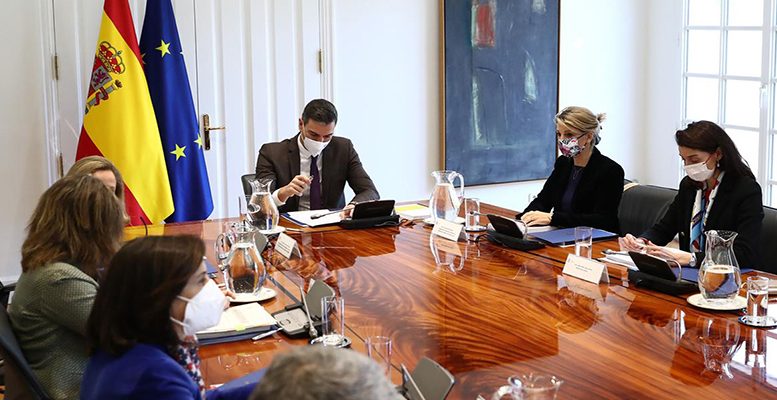Although the annual rate of inflation moderated in November to 6.8 % – from 10.8 % in July – food prices are still at a record high of 15.3 %. That is why the government will today propose a third support package that will include the extension of some of the measures currently in force, which expire on 31 December, and other new ones, mainly related to the shopping basket. In addition, Pedro Sánchez announced a few days ago that this new package of measures will also include support for the gas-intensive and ceramics industries.
Reduction of VAT on the shopping basket and a 300-euro cheque
One of the new initiatives is the reduction of VAT on some foods that are taxed at 10%, including fish, which could be reduced to 4%.
Foodstuffs are subject to 10% VAT, except for those considered staple foods such as milk, eggs, fruit and vegetables, bread and pulses, which are taxed at the super-reduced rate of 4% and cannot benefit from a lower rate, unless the government decides to eliminate VAT for these products.
In addition to the VAT reduction, the leader of Podemos, Ione Belarra, announced a few days ago that she was negotiating with the PSOE for an aid cheque of around 200 euros to alleviate the cost of the shopping basket, which would benefit around 4 million people.
Extension of measures in force
Sources at the Ministry of Finance assume that “quite a few measures” currently in force will also have to be extended. However the only measure included in next year’s public accounts is the free Cercanías and Media Distancia tickets for frequent travellers, which will cost some 660 million euros over the course of the year.
Amongst the measures that have already been confirmed to be extended are the 2% limit for updating rental income and the 15% rise in non-contributory pensions, following the Government’s agreement with EH Bildu to secure its support for the General State Budget (PGE) for 2023.
In fiscal matters, the Government promoted a raft of measures aimed at containing the rise in electricity bill prices. Of particular note is the lowering of VAT on electricity bills from 10% to 5%, which is applied to consumers, companies or individuals, with a contracted power of up to 10 kilowatts, the application of the 0.5% tax rate of the Special Tax on Electricity, and the extension of the temporary suspension of the Tax on the value of electricity production.
All these tax cuts aimed at moderating electricity price rises led to a 6.436 billion euros reduction in tax revenue between January and October compared to last year, according to the latest figures updated by the Tax Agency in its monthly tax collection report.
It should also be remembered that in the second package of measures approved in June, the Government included a transitional increase of 15% in the Minimum Living Income, a ban on the suspension of electricity, gas and water supplies, direct aid of 200 euros for wage earners, the self-employed and the unemployed registered at employment offices who live in households with an income of less than 14,000 euros, and a freeze on the maximum price of butane canisters at 19.55 euros until the end of the year.
What will happen with the fuel discount?
One of the most questioned measures is the extension of the 20 cent discount on a litre of fuel. The First Vice-President and Minister for Economic Affairs and Digital Transformation, Nadia Calviño, has acknowledged that this is a controversial measure because of its fiscal impact and because it benefits those who own cars and not the most vulnerable classes. For this reason, she has opened the door to “focusing it on the sectors that could be most affected”, amongst which she mentioned transport, agriculture, livestock and fishing. “What we are looking at is whether we can eliminate this bonus for everyone and keep it only in those sectors where it is necessary”, Calviño recently stated.





